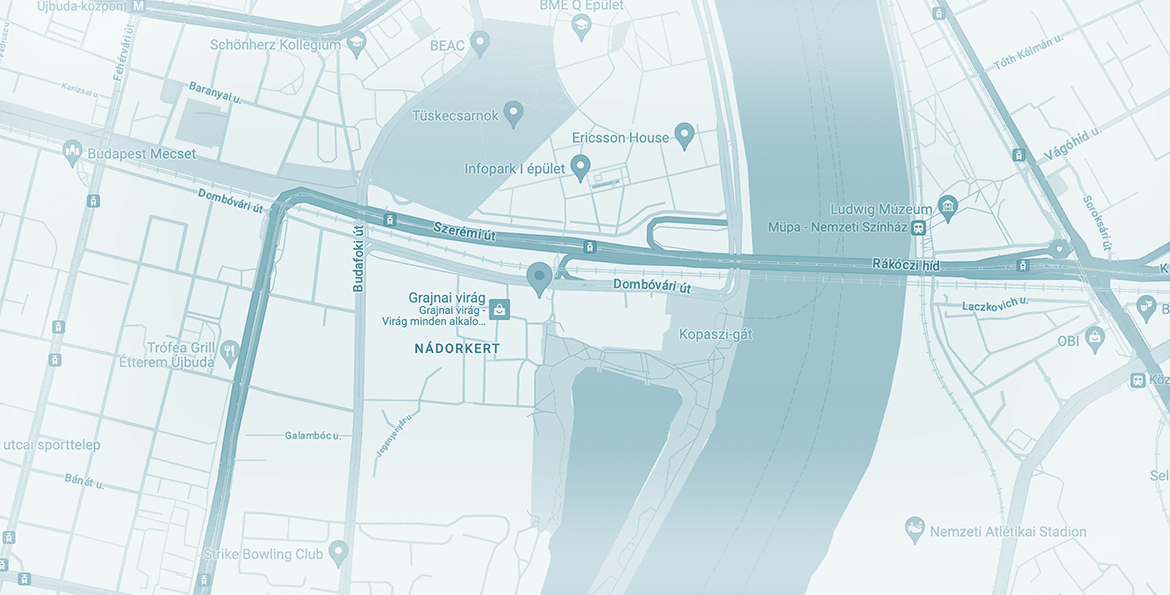
How to make an employment contract in Hungary
When you make your first hire at your Hungarian company, you will need an employment contract to formalize the agreement between you and your employee. Here you can find a quick guide about what to include, as well as some practical advice.
When you make your first hire at your Hungarian company, you will need an employment contract to formalize the agreement between you and your employee. Here you can find a quick guide about what to include, as well as some practical advice.
Creating an employment contract
First of all, the employment contract or labor contract (they are the same) you make for your Hungarian company must comply with Hungarian labor law. If you already have a foreign business with established contract templates, you should either contact a lawyer specialized in this, or create a contract based on a Hungarian template to ensure that is matches all requirements. Our team has plenty of experience with both.
- The Hungarian employment contract has some mandatory elements which must always be included (see below).
- The agreement between you and your employee should not include provisions that are not in accordance with Hungarian law. If it does and there is a dispute, the contract might be outlawed in court.
- While the law does not specify that the language of the contract must be Hungarian, but it must be in a language that is understood by both parties. To avoid future disputes, it is best practice to make the employment contract bilingual, where one of the languages is Hungarian, and the contract includes a note that in case of a dispute, the Hungarian version prevails.
Mandatory elements of the employment contract
To protect the rights of both the employer and the employee, the employment contract must include a set of basic information about the job. Of course, you are allowed to list additional provisions as well. Both these and aspects not mentioned in the contract are governed by the Hungarian Labor Code.
1. Contracting parties
The name and basic data of your employee and your Hungarian company should be indicated correctly.
2. Position
The name of the job the employee will perform. Hungarian job titles are typically lax, since information will be detailed in the job description (see below). However, it helps the recruitment if the job title is descriptive of the tasks to perform. If your employee is a third-country national who is coming to Hungary to work for you, the position listed here must match position indicated in the Labor Demand section of the work permit application.
3. First day of employment
The starting date of the employment relationship between you and your employee, when they start to work and from when you must pay them a salary.
4. Employment period
An employment contract can be created for either a fixed term or an indefinite term. In Hungary, most employment contracts are for an indefinite term, but if your employee is a third-country national, you will need a fixed term (since the work permit is always given for a fixed term).
Here you also have to indicate whether the job is a full-time or part-time job. In Hungary, a full-time job means 40 hours a week, which is normally distributed over 5 days a week, and 8 hours a day. Of course, other distributions are possible as long as proper rest periods and wage supplements are observed.
5. Gross salary
The gross salary is the sum based on which both you and your employee pay taxes. In Hungary, you as the employer will need to calculate and pay taxes on behalf of your employee, and they will receive a net salary: the salary that remains after taxes. On top of this, you will be paying a social contribution tax.
The gross salary must be at least the current minimum wage. This is increased every year to keep it a living wage. If the minimum wage becomes higher than the salary indicated in the employment contract, you must give your employee a raise and the contract must be modified. Of course, you can raise your employee’s salary even if it remains above minimum wage so it retains its purchase power.
If you offer your employees any compensation beside the salary, i.e. fringe benefits, that should be listed in the employment contract too. (Mind you, creating a fringe benefit plan is not necessarily cost-effective for small and medium-sized companies, it is most customary at bigger organizations.)
6. The length of the trial and the notice period
The trial period is a period at the start of the employment relationship when both parties are allowed to terminate the relationship with immediate effect and without giving a reason. The length of this varies between 1-3 months, but cannot be longer than 3 months.
After the trial period, the employment relationship can regularly be terminated with a notice, which is usually 1-2 months long. During the notice period, the employee continues to work and receive a salary – details depend on which party initiated the termination. This way your employee has time to look for a job, and you have time to look for a replacement.
Read more here about termination.
7. Place of work
The location where the work is performed should be included. This can be the site of the employer (office, shop, warehouse, etc.), the home of the employee (in the case of teleworking), or on the go (e.g. for drivers).
+1: Job description
The job description is not part of the employment contract, but a separate document that details the responsibilities entailed by the position indicated in the contract, as well as the place of the position within the organization, the direct supervisor, subordinates, substitution, regular tasks, and required skills.
+2: Information by the employer
Another separate document that includes details of the Hungarian Labor Code the employee should be aware of, and how those details are implemented at your Hungarian company. These include information such as when to expect salaries to be paid, regular working hours, how the number of vacation days is calculated and how PTO can be taken, and various other details.
Additional provisions to consider
The above section lists only the mandatory elements that must be included when you make an employment contract. You are free to add additional provisions as long as they are in agreement with Hungarian labor law. If fact, it is even recommended to agree with your employee on every aspect you find relevant for your Hungarian business in order to avoid future disputes.
Some typical topics to include:
A. Data security
Since you as the employer will handle the personal data of your employee, it makes sense to include information about how you will handle their data, and how long will you retain these data after termination.
B. Confidentiality
Your employee will probably access sensitive data during their work, so it is important to define what these are and how they should be handled. Such data may include personal data of you, other employees, or customers, as well as trade secrets.
C. Non-compete agreement
A non-compete agreement or a non-compete clause will pertain to the period after the termination of the employment contract. In exchange for an appropriate fee, the employee agrees not to enter employment at a competitor or start a competing business on their own for a set period. Even if this is included in the employment contract, you as the employer can waive it before termination. Read more here.
Let the Helpers Team take care of administration
If you are planning to hire an employee at your Hungarian company, feel free to ask for a consultation and discuss your options with our HR and payroll specialists. We provide comprehensive HR support to our clients, which can include:
- Hungarian employment contract template (so you do not have to create a contract from scratch before making your first hire)
- Employment contract modification (when giving a raise or for making other changes)
- Payroll administration – keeping track of available tax benefits and calculating the taxes payable
If your future employee is a third-country national, our team at Helpers Hungary would be happy to discuss available work permit options with you.
The Helpers Team has 20 years of experience supporting foreigners living, working, and doing business in Hungary, and we would be happy to offer you solutions tailored to your needs.
Contact
Get in touch today
Monday - Friday
9am - 5pm CET
Helpers Finance Kft.
Budapart Gate
Dombóvári út 27
Budapest 1117, Hungary
If you’re visiting us, please use entrance A and come to the 2nd floor.



